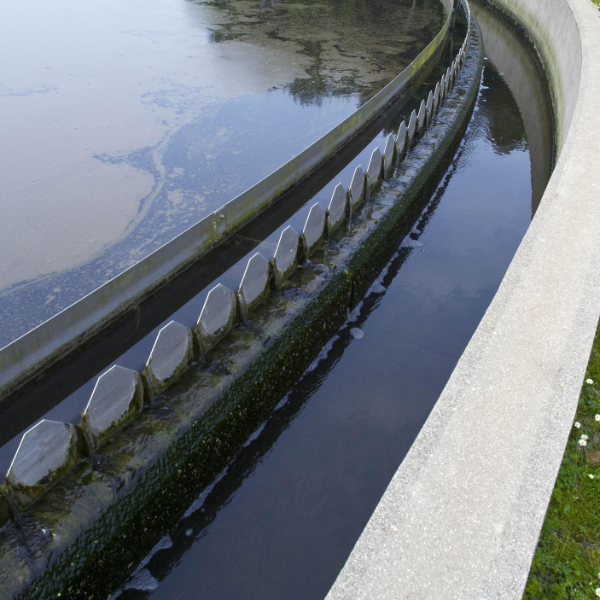Extra treatment phase to remove drugs from wastewater

Extra treatment phase to remove drugs from wastewater
Domestic wastewater often contains traces of the medications that people take. In January 2017, Witteveen+Bos, Delft University of Technology, Nijhuis Water Technology, STOWA and Waternet launched a laboratoryscale research project to test an innovative new method of removing this form of contamination. It is based on ‘ozone and active carbon filtration’ (O3GAC), applied as an additional step in the treatment process to convert micropollutants such as pharmaceutical residues into harmless substances.
Since 2007, Witteveen+Bos has been working alongside Waternet and STOWA to develop a filtration technology called 1-STEP® (One Step Total Effluent Polishing), which can be used in the post-purification of effluent at treatment plants. The current research, for which a laboratory-scale trial has been set up at Delft University of Technology, examines the potential of active carbon filtration (O3GAC) as a means of removing micropollutants even more effectively.
O3GAC technology is termed a ‘triple barrier’ and relies on oxidation, adsorption and biological (active) filtration. Ozone is used to break down micropollutants into even smaller particles. As yet, it has not been possible to replicate this process in a fullscale 1-STEP® installation. Adsorption and biological conversion take place within the activated carbon filter unit, which minimises emissions of any by-products. There is to be a follow-up study to examine whether it is possible to simultaneously remove nitrogen and phosphate compounds from wastewater.
If the laboratory trials at Delft University of Technology prove successful, a full-scale demonstration project will be launched in autumn at the Horstermeer wastewater treatment plant, where the 1-STEP® filtration method has been successfully applied for several years. The filter unit’s treatment performance and the design principles can then be tested in practice. Witteveen+Bos is the lead partner in the project and will oversee the demonstration phase. The system is also to be trialled for three months at a Belgian treatment plant operated by Aquafin, and at a German site operated by Wasserverband Eifel-Rur. The objective is to learn from the experiences gained at other treatment plants, to investigate the international potential of this technology, and to promote knowledge-sharing.